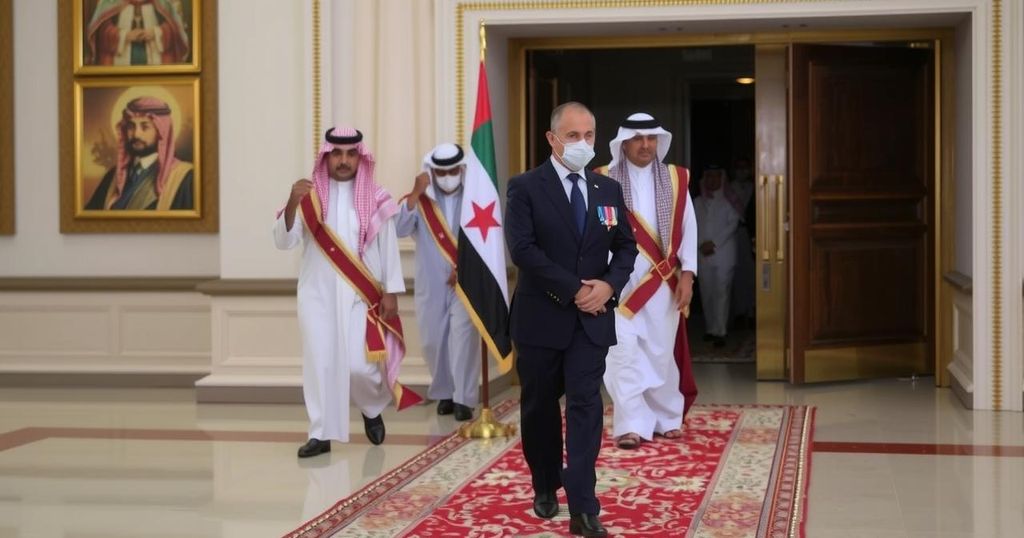Syria’s Foreign Minister, Asaad al-Shaibani, will visit Qatar, the UAE, and Jordan this week following his initial trip to Saudi Arabia. The visits aim to garner investment to support Syria’s reconstruction and economic recovery after a decade of war. Al-Shaibani expressed hopes for stability and partnerships during these engagements.
Syria’s Foreign Minister, Asaad al-Shaibani, has announced planned visits to Qatar, the United Arab Emirates (UAE), and Jordan this week, indicating a proactive approach to reviving international relations following the nation’s recent political shifts. Following his inaugural visit to Saudi Arabia, he articulated a desire for increased investment from Gulf nations to facilitate the reconstruction of Syria’s war-torn infrastructure and stimulate economic recovery. Al-Shaibani emphasized the goal of these engagements, stating the visits aim to promote stability, security, and the establishment of beneficial partnerships with these key regional players.
Syria has faced extensive devastation due to an ongoing conflict that has persisted for over a decade, resulting in severe economic challenges and damage to crucial infrastructure. In light of recent changes in leadership, following the ousting of President Bashar al-Assad, the new government is taking steps to seek assistance from Gulf states, which are viewed as potential investors that could aid in the rebuilding process. Engaging with regional powers such as Saudi Arabia, Qatar, and the UAE is seen as both a strategic necessity and an opportunity for Syria to reintegrate into the geopolitical landscape of the Middle East.
The planned diplomatic visits by Syria’s new Foreign Minister signify a strategic shift aimed at revitalizing the nation’s international partnerships and attracting investments crucial for reconstruction efforts. The government is clearly focused on leveraging relationships with Gulf states to support Syria’s economic recovery while fostering stability in the region. Al-Shaibani’s emphasis on building distinguished partnerships highlights a forward-looking approach in navigating the post-conflict landscape.
Original Source: www.newarab.com






